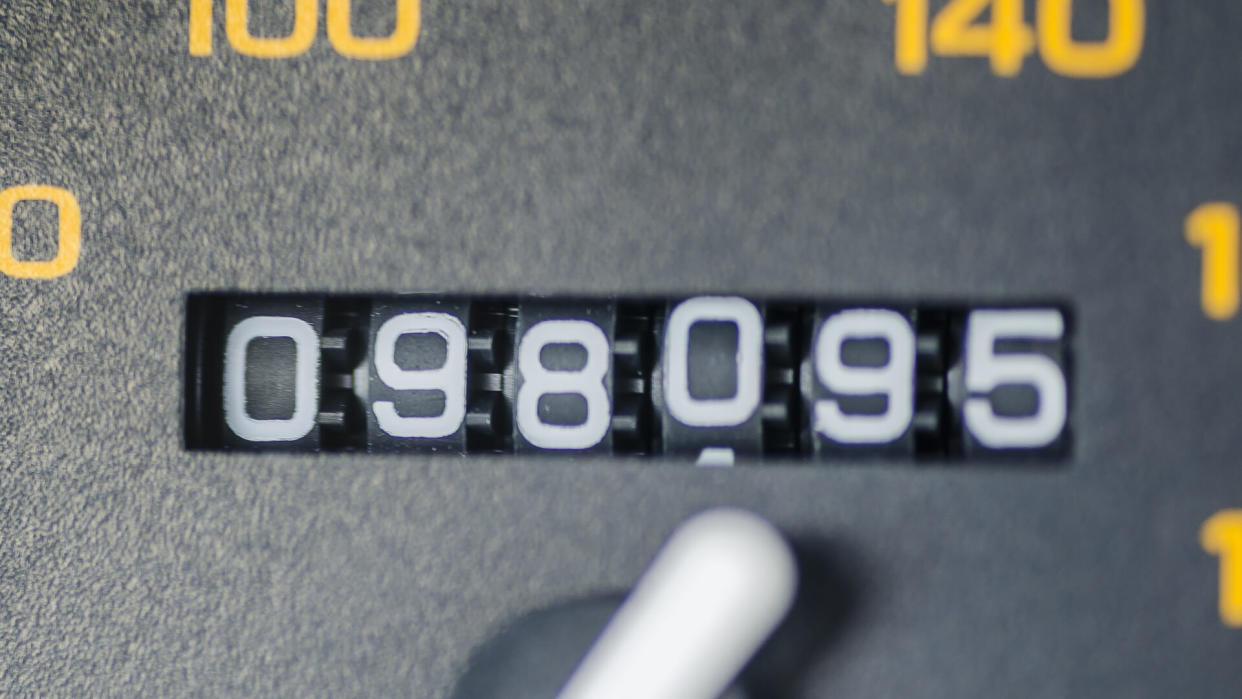5 Factors That Depreciate Car Value the Most

Buying a new car can be exciting. From the model, make and smell — there is nothing that quite compares to the purchase of an automobile that you can call your own.
The only problem is that most cars, with some exceptions, aren’t really viewed as investments. In fact, they start to depreciate in value the second you drive them off the lot.
Check Out: These 10 Used Cars Will Last Longer Than an Average New Vehicle
Learn More: How To Get $340 Per Year in Cash Back on Gas and Other Things You Already Buy
“Condition matters greatly, encompassing both the exterior and interior state of the car, including any signs of accidents, rust, or cosmetic damage,” said Nick Musica of Cash For Your Junk Car. “Market demand also influences depreciation; vehicles with a higher demand tend to hold their value better. Brand and model reputation, as well as historical reliability, impact how potential buyers perceive a car’s long-term value.”
To find out what takes the most out of your vehicle, GOBankingRates spoke to Musica and other automotive experts. Here’s what they had to say.
Also see which cars lose value fastest.
Mileage
The worth of your automobile is mainly influenced by the number of miles it has been driven. The higher the mileage, the less the car is worth in overall value.
Tariro Goronga, the CEO of DriveSafe Driving Schools, said the typical yearly mileage for a car is somewhere between 12,000 and 15,000 miles. Anything below that is thought to be low mileage, and anything above that is considered high mileage.
“In essence, as you drive your car more and more, its overall value will decrease,” Goronga said.
Even if your car has been trustworthy for over 200,000 miles with only a few issues, its resale value will suffer significantly.
To ensure that your car remains in low mileage territory and retains its worth, Goronga recommends setting limits for yourself on the miles you drive each day, week or month.
Goronga said, “This will help you keep track of your mileage and avoid accruing too many miles over time.”
Check Out: Avoid These 7 Cars That Will Only Last You Half as Long as the Average Vehicle
Vehicle History
“Maintaining your car’s value over the long term means driving safely,” Goronga said.
Bumps, dents, accidents, repairs and even minor fender benders can all add up to bring your car’s total worth down.
“Accidents not only cause physical damage,” Goronga said, “but they can also reduce a car’s worth when it comes time to trade in or sell. Even if repairs are done professionally after an accident, many buyers will avoid cars with any blemishes on their history reports. To get the best resale price, keeping your vehicle history as clean as possible is important.”
Cars involved in accidents generally suffer a diminished value compared to their non-accident counterparts, said Gareth Boyd, editor for Range Rover Fanatic.
“Even after proper repairs,” he said, “the perception of potential ongoing issues can lower the resale value.”
The Market
Your new car might come with a great suspension, four-wheel drive and a set of great tires, but can it weather the rocky road of the markets? This doesn’t just apply to market conditions overall, but perception and reputation of your vehicle on ticker.
“Negative perceptions or controversies surrounding a particular car model, such as safety concerns or recalls, can lower its resale value,” said Joyce Gutierrez, an automotive expert for 4WheelOnline. “Similarly, a reputation for regular breakdowns or poor reliability can decrease a car’s value.”
Once a car model is “no longer popular or in demand among buyers, its value may decrease over time,” Gutierrez said. “Factors like changing consumer preferences, new technology or newer models entering the market can affect a car’s resale value.”
Modifications
Cars aren’t cool until you soup them up and deck them out, right?
Well, that all depends on your taste, but one thing is for sure: The more outlandish modifications you add to your car, the less it’s worth if and when you try to sell it.
“While some enhancements or modifications can increase a car’s value, others can have a negative impact,” Gutierrez said. “Changes that are undesirable or may compromise the car’s performance or reliability can lower its value.”
Robert Luterzo, automotive engineer and editor for Automotive Widget, added: “Extreme modifications like engine swaps, extensive custom bodywork or major performance upgrades often lead to significant value depreciation.”
“Such changes can reshape a car’s original engineering and design, introducing potential reliability problems and future maintenance worries.”
Rental or Fleet Use
If you bought your car to use for driving rideshare with companies such as Uber or Lyft, or you plan to rent it out on a site like Turbo, be prepared to watch the value of the car drop.
“Cars previously used as rental vehicles or in large fleets may have higher mileage, increased wear and tear and a perception of being less well-maintained,” Gutierrez said. “This can lead to a decreased value compared to similar cars that were privately owned.”
More From GOBankingRates
Dave Ramsey: Why You Shouldn't Buy a New Car/Take Out an Auto Loan This Year
5 Reasons You Should Consider an Annuity For Your Retirement Savings
This article originally appeared on GOBankingRates.com: 5 Factors That Depreciate Car Value the Most
